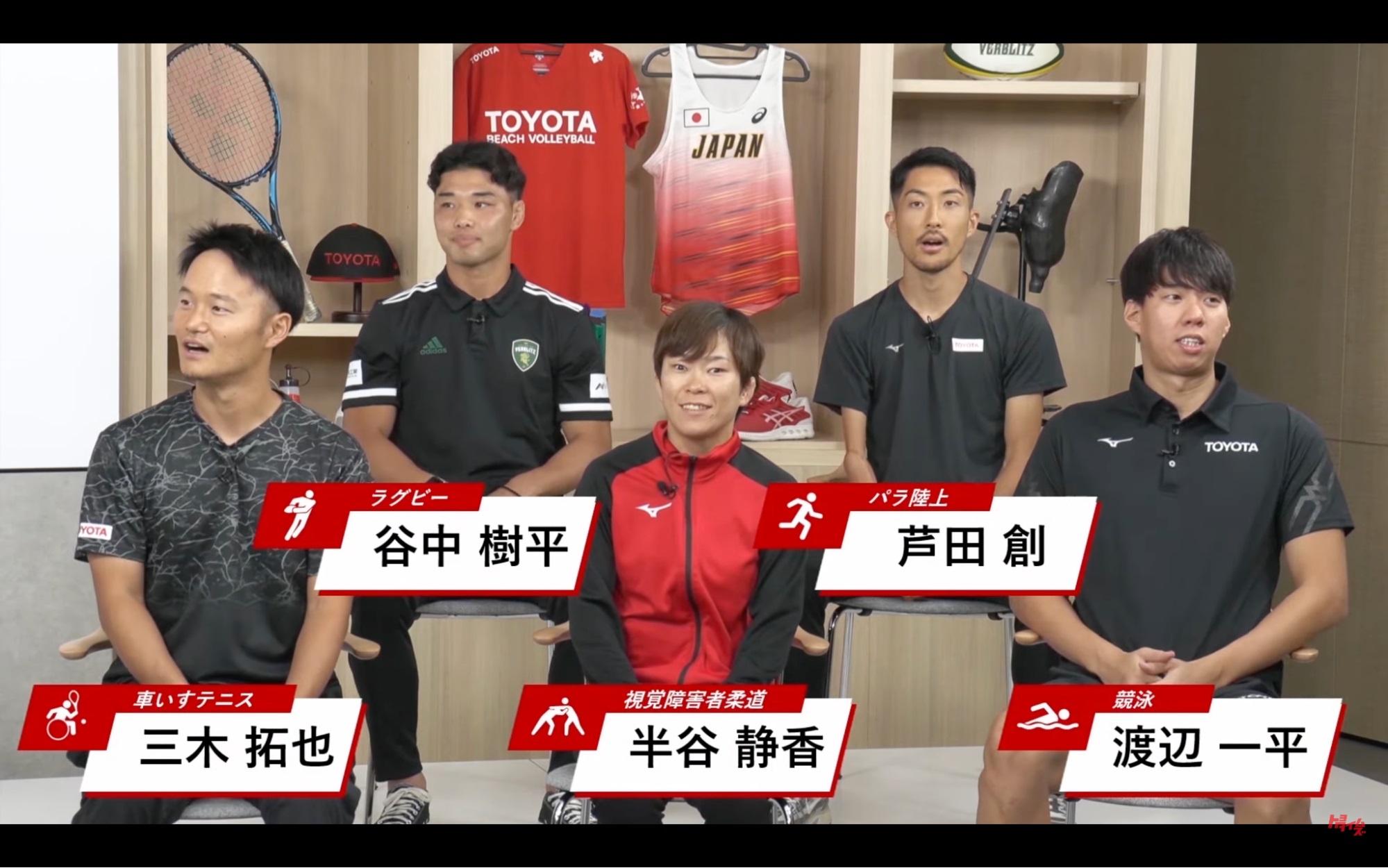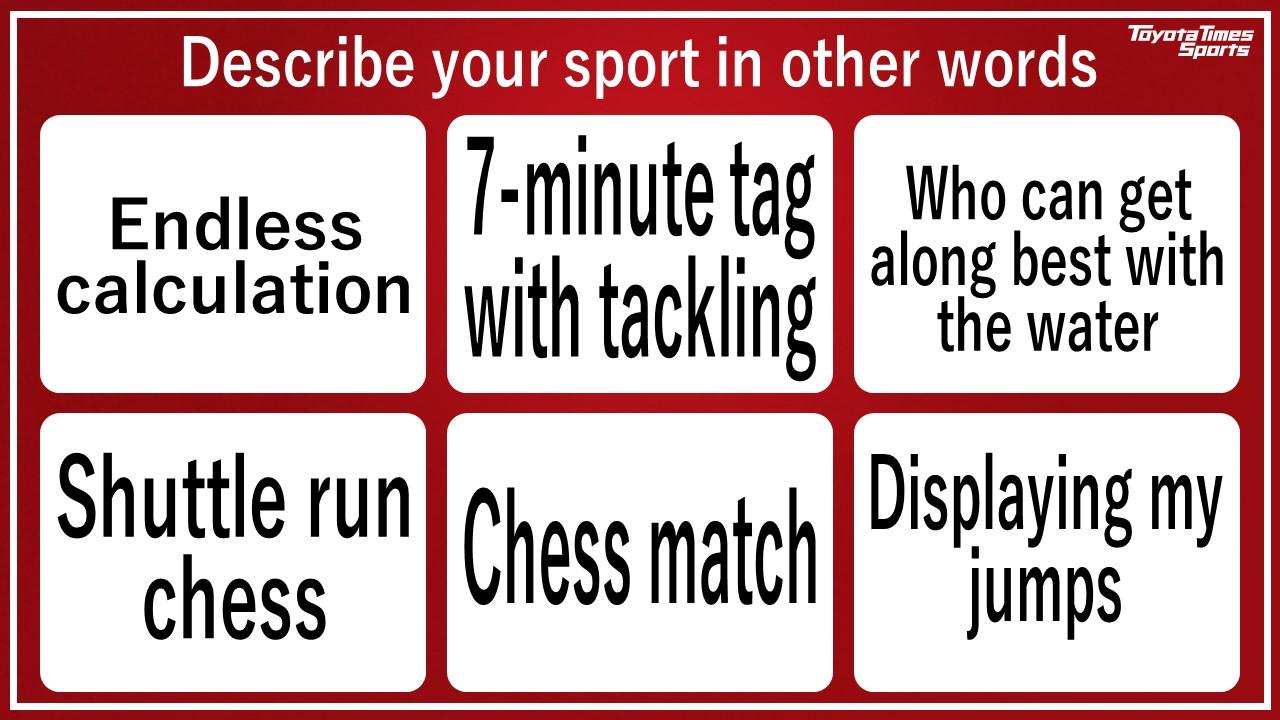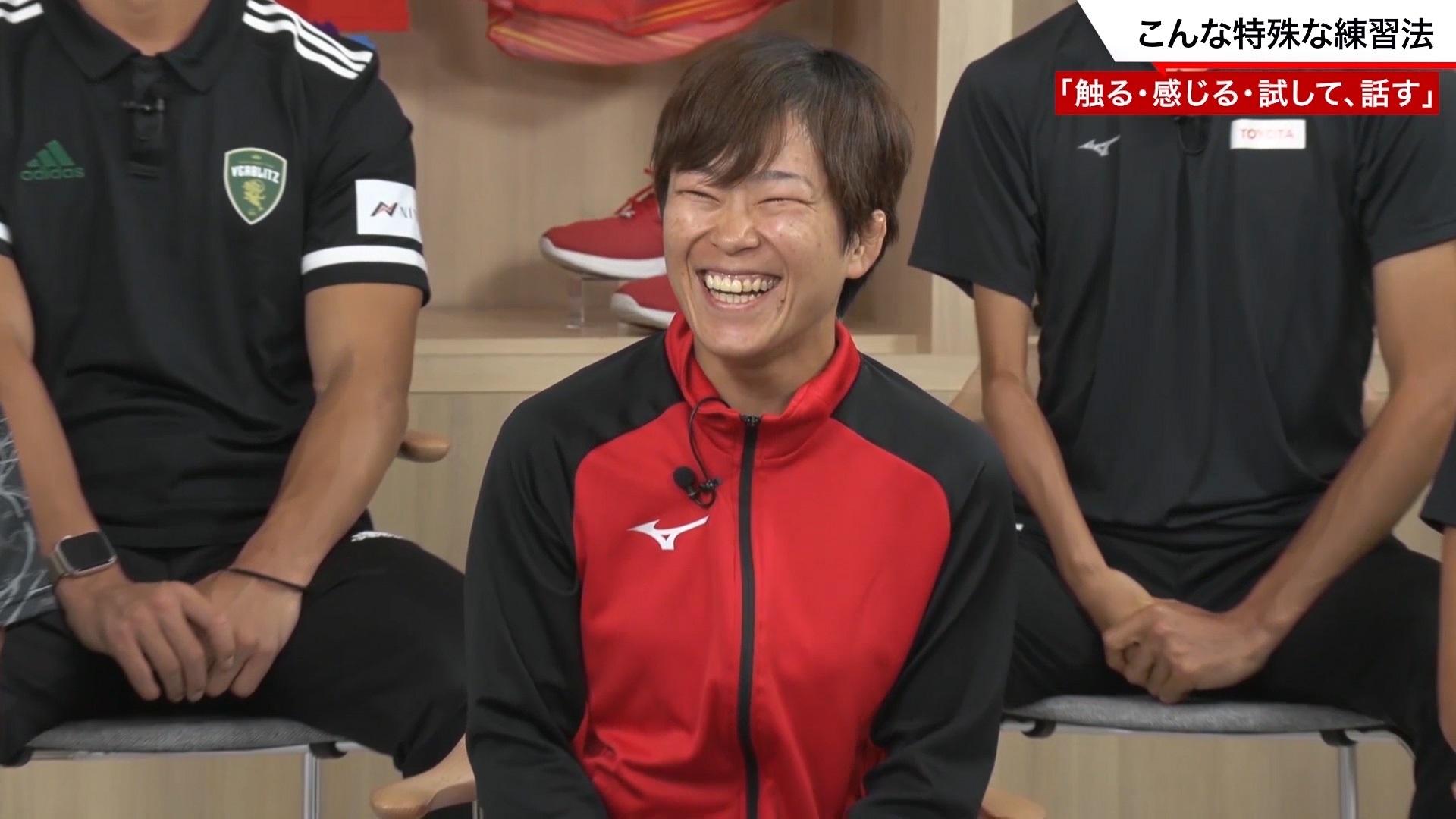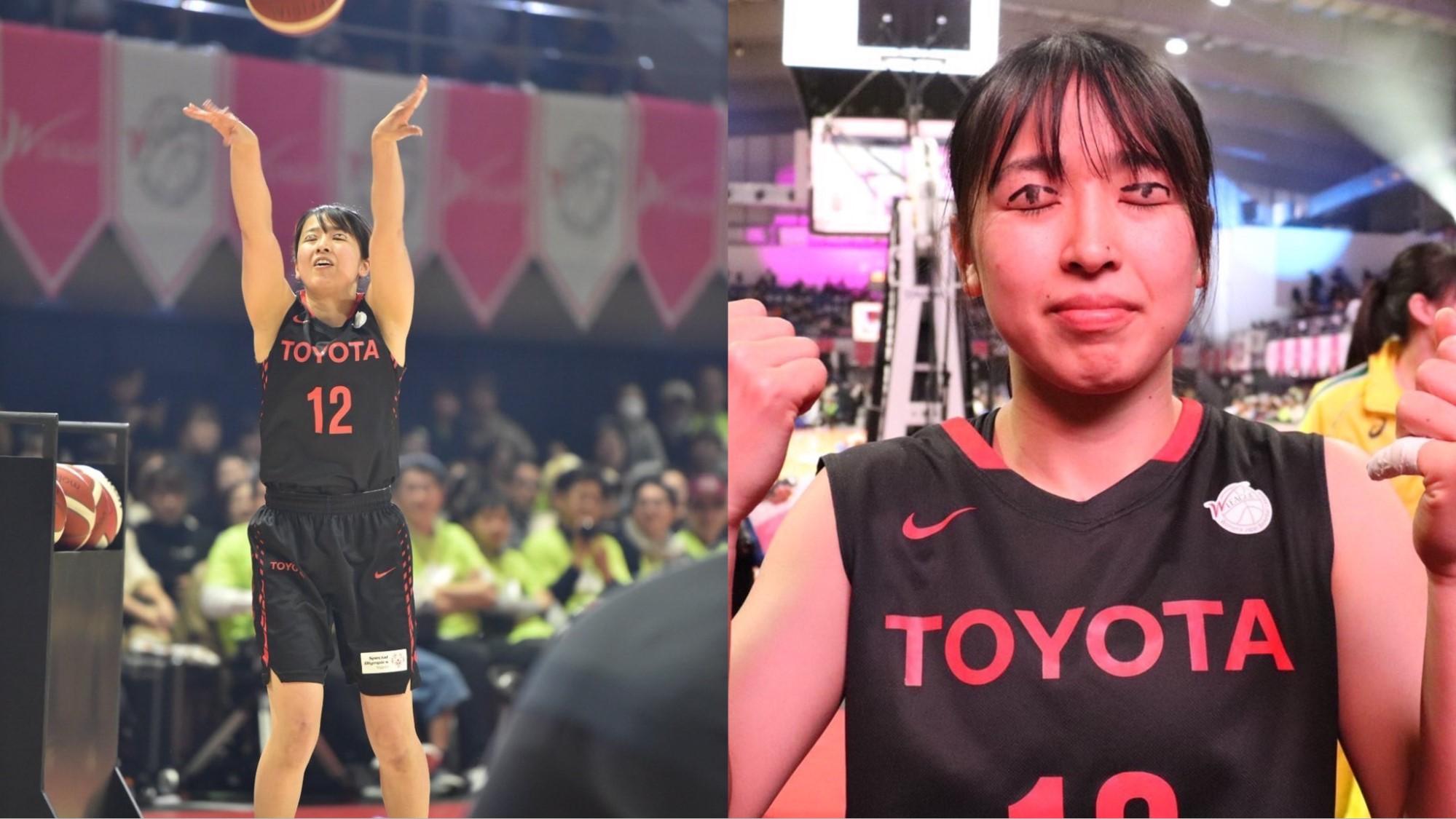
Part two of a special program on the Toyota athletes aiming for Paris next year brings together five Japanese competitors for a candid talk show-style chat filled with the unique lingo of top athletes.

On September 8, Toyota Times Sports aired the second part of a special feature on the Toyota athletes aiming for Paris next year. Five Japanese athletes visited the studio to talk about everything from training methods to behind-the-scenes competition stories.
The guests have a rich vocabulary and incredible ability to express the physical sensations and mental state of athletes. Visually impaired judoka Shizuka Hangai’s descriptions of her world, particularly had the theory-minded athletes paying close attention.
The athletes’ “unforgettable moments”
Following on from our previous broadcast featuring interviews and messages from Toyota athletes around the world, this time, we brought together Japanese competitors for a special talk show led by Naho Miyoshi (Toyota Sports & Corporate Citizenship Div.), who was part of the silver medal-winning women’s basketball team in Tokyo.
The five guests were Wimbledon wheelchair doubles runner-up Takuya Miki; visually impaired judoka Shizuka Hangai (Toyota Loops), aiming for her third-straight Games after competing in both Rio and Tokyo; former breaststroke world record holder Ippei Watanabe; Kippei Taninaka, a member of Japan’s rugby sevens team who joined Toyota in April; and Hajimu Ashida, a Rio bronze medalist in para-athletics.

First up, those athletes with Olympic and Paralympic experience shared unforgettable moments from their time in competition. Hear their stories here.
Why judo is a sport of “endless calculation”
The next segment asked the athletes to describe their sport using other words. Miki went with “shuttle run chess,” Miyoshi “a chess match,” Ashida “displaying my jumps,” and Taninaka “7 minutes of tag with tackling.” Watanabe initially offered “who can get along best with water,” before deciding to follow suit with “water and chess.”

Hangai’s response was “endless calculation.” The reason she gives is that “judo is a clash of power, but everything is meticulously calculated. Each step forward, each pull back, is positioned so you don't waste any force. In judo, we talk about techniques such as ‘holding up the collar hand’ and ‘reversing the pulling hand.’ You can create a path of force using those skillfully. You apply these moves at the point where the opponent’s pushing force intersects with yours.”
“Coaches give you the formulas. Athletes put them together,” says Hangai. “It doesn’t matter how you get to the answer—I feel like judo is about getting to the answer by using whichever calculation works.”
“I want to listen to her talk for another hour,” remarked Miki, a sentiment echoed by viewers commenting in the chat: “Hangai’s words are so deep!”
Hangai is used to verbally expressing the sport’s movements, but when Coach Yuko Isozaki described judo as “surfing on tatami mats... finding perfection without resisting the forces of nature,” she also tried actual surfing for herself. “My coach has spent a long time refining my movements,” she says with gratitude. “She never allows me to blame my eyesight but instead finds a reason that lies within me.”
How to master techniques without seeing them
Hangai also revealed her unique training methods. Unable to watch videos or the coach’s demonstrations, her practice style consists of four steps: “touch, feel, try, and talk.” She begins by touching the coach’s body to check their movements.
“The first step is to touch. We break down the throwing action frame by frame to check the angles of the hand or shoulder. I create images in my mind by identifying the pivot and force points, then turn these frames into motion, like a flip book animation. The process of sensing force direction comes in the ‘feel’ step. For that, I have the moves done to me so that I can feel the speed, strength, and timing.”
Finally, Hangai tries out the technique for herself and shares the feedback with her coach. “You can't replicate the errors that occur in competition, so it's hard for coaches to give feedback,” she explains. “For visually impaired athletes, coaching doesn’t work unless you recognize your own errors, which makes the ‘try and talk’ aspect extremely challenging.” Find Hangai’s clear, detailed description of her training here.

The unique challenges of timed sports
One topic that spurred lively discussion between the athletes was how to deliver the best performance in timed sports such as athletics and swimming. Ashida suggested, “Mentality is very important. In daily life, I make decisions that will help me jump farther.” Watanabe agreed that “the world of timed sports is profound, and there is much we don't know.” See their riveting exchange here.
Hangai, for whom orientation is a daily struggle, asked Watanabe for pointers on how to swim straight despite being unable to see. He explained that “most of us swim with our eyes closed,” advising her to focus on making equal motions on both sides of the body.
Speaking of doing things with eyes closed, during the broadcast Miyoshi shared some startling photos. When shooting her signature three-pointers, she is always captured with eyes shut, and even claims she can sink a basket blindfolded. At the All-Star game, she took part in the contest with eyes drawn onto her eyelids, photos of which were revealed on the show.

What wheelchair tennis has in common with motorsports
Other topics included the way Taninaka resets mentally between his three daily matches at the Games. On hearing that Miki adjusts his wheelchair casters to suit court conditions, host Kyonosuke Morita pointed out the similarity with motorsports. Watch Miki explain how he makes these changes here.
In a segment asking the athletes to show off their beloved cars, Miyoshi showed a photo of the Lexus NX she received after winning her silver medal. “You could get one too if you win a medal!” she tells the athletes, providing the ultimate motivation.
The athletes also watched video messages of support from their workplaces, further boosting their determination to succeed in Paris. Along with encouragement from the Toyota family, the advice and strength received from peers in different disciplines will no doubt prove a major driving force in their quest for medals.

